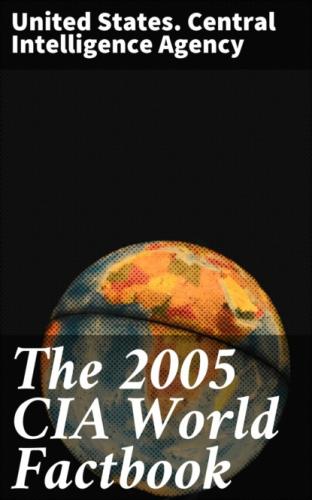20,000 (2003 est.)
Major infectious diseases: degree of risk: very high food or waterborne diseases: bacterial and protozoal diarrhea, hepatitis A, and typhoid fever vectorborne diseases: dengue fever and malaria are high risks in some locations (2004)
Nationality:
noun: Burmese (singular and plural)
adjective: Burmese
Ethnic groups:
Burman 68%, Shan 9%, Karen 7%, Rakhine 4%, Chinese 3%, Indian 2%,
Mon 2%, other 5%
Religions:
Buddhist 89%, Christian 4% (Baptist 3%, Roman Catholic 1%), Muslim
4%, animist 1%, other 2%
Languages:
Burmese, minority ethnic groups have their own languages
Literacy:
definition: age 15 and over can read and write
total population: 85.3%
male: 89.2%
female: 81.4% (2002)
Government Burma
Country name:
conventional long form: Union of Burma
conventional short form: Burma
local long form: Pyidaungzu Myanma Naingngandaw (translated by the
US Government as Union of Myanma and by the Burmese as Union of
Myanmar)
local short form: Myanma Naingngandaw
former: Socialist Republic of the Union of Burma
note: since 1989 the military authorities in Burma have promoted the
name Myanmar as a conventional name for their state; this decision
was not approved by any sitting legislature in Burma, and the US
Government did not adopt the name, which is a derivative of the
Burmese short-form name Myanma Naingngandaw
Government type:
military junta
Capital:
Rangoon (government refers to the capital as Yangon)
Administrative divisions:
7 divisions (taing-myar, singular - taing) and 7 states (pyi
ne-myar, singular - pyi ne)
: divisions: Ayeyarwady, Bago, Magway, Mandalay, Sagaing,
Tanintharyi, Yangon
: states: Chin State, Kachin State, Kayin State, Kayah State, Mon
State, Rakhine State, Shan State
Independence:
4 January 1948 (from UK)
National holiday:
Independence Day, 4 January (1948); Union Day, 12 February (1947)
Constitution:
3 January 1974; suspended since 18 September 1988; national
convention convened in 1993 to draft a new constitution but
collapsed in 1996; reconvened in 2004 but does not include
participation of democratic opposition
Legal system:
has not accepted compulsory ICJ jurisdiction
Suffrage:
18 years of age; universal
Executive branch:
chief of state: Chairman of the State Peace and Development Council
Sr. Gen. THAN SHWE (since 23 April 1992)
head of government: Prime Minister, Gen SOE WIN (since 19 October
2004)
cabinet: State Peace and Development Council (SPDC); military junta,
so named 15 November 1997, which initially assumed power 18
September 1988 under the name State Law and Order Restoration
Council (SLORC); the SPDC oversees the cabinet
elections: none
Legislative branch:
unicameral People's Assembly or Pyithu Hluttaw (485 seats; members
elected by popular vote to serve four-year terms)
elections: last held 27 May 1990, but Assembly never allowed by
junta to convene
election results: percent of vote by party - NA%; seats by party -
NLD 392 (opposition), SNLD 23 (opposition), NUP 10 (pro-government),
other 60
Judicial branch:
remnants of the British-era legal system are in place, but there is
no guarantee of a fair public trial; the judiciary is not
independent of the executive
Political parties and leaders:
National League for Democracy or NLD [AUNG SHWE, chairman, AUNG SAN
SUU KYI, general secretary]; National Unity Party or NUP
(pro-government) [THA KYAW]; Shan Nationalities League for Democracy
or SNLD [KHUN HTUN OO]; and other smaller parties
Political pressure groups and leaders:
National Coalition Government of the Union of Burma or NCGUB
(self-proclaimed government in exile) ["Prime Minister" Dr. SEIN
WIN] consists of individuals, some legitimately elected to the
People's Assembly in 1990 (the group fled to a border area and
joined insurgents in December 1990 to form parallel government in
exile); Kachin Independence Army or KIA; Karen National Union or
KNU; several Shan factions; United Wa State Army or UWSA; Union
Solidarity and Development Association or USDA (pro-government, a
social and political organization) [THAN AUNG, general secretary]
International organization participation:
APT, ARF, AsDB, ASEAN, CP, FAO, G-77, IAEA, IBRD, ICAO, ICRM, IDA,
IFAD, IFC, IFRCS, IHO, ILO, IMF, IMO, Interpol, IOC, ITU, NAM, OPCW
(signatory), UN, UNCTAD, UNESCO, UNIDO, UPU, WCO, WHO, WIPO, WMO, WTO
Diplomatic representation in the US:
chief of mission: vacant
chancery: 2300 S Street NW, Washington, DC 20008
telephone: [1] (202) 332–9044
FAX: [1] (202) 332–9046
consulate(s) general: New York
Diplomatic representation from the US:
chief of mission: Charge d'Affaires Carmen M. MARTINEZ
embassy: 581 Merchant Street, Rangoon (GPO 521)
mailing address: Box B, APO AP 96546
telephone: [95] (1) 379 880, 379 881
FAX: [95] (1) 256 018
Flag description:
red with a blue rectangle in the upper hoist-side corner bearing,
14 white five-pointed stars encircling a cogwheel containing a stalk
of rice; the 14 stars represent the 7 administrative divisions and 7
